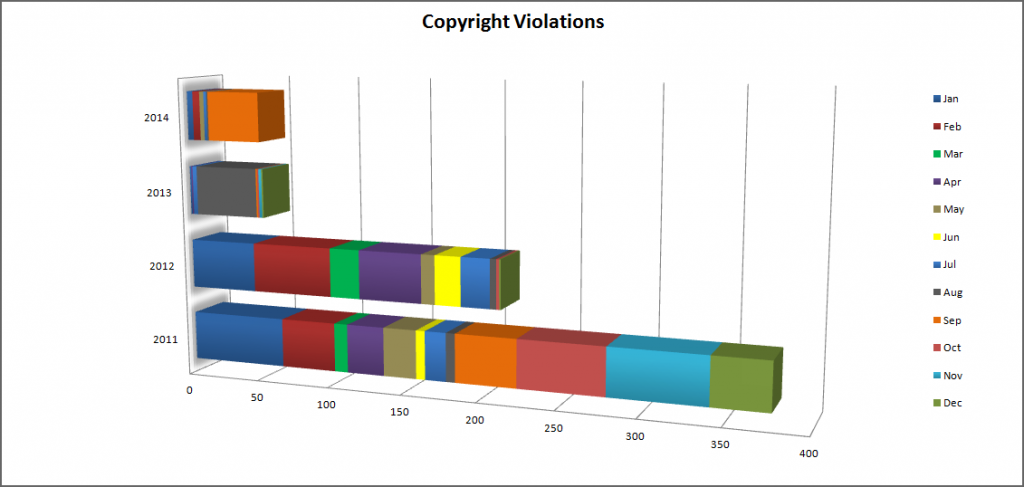
The number of copyright violations has declined since 2011. There has been a significant increase during September 2014.
Article Updated: September 12, 2014
Recently, the University of Mississippi has seen an increase in the number of copyright violation notices received from the RIAA (Recording Industry Association of America) and the Entertainment Software Association in accordance with the DMCA (Digital Millennium Copyright Act). These notices typically identify illegal music and movie downloads from the campus network. The vast majority of violations come from using the file sharing program, BitTorrent. To meet the University’s responsibility in addressing these violations, the University blocks the computer identified as containing the copyrighted material. See the Network Blocked List for a list of computers and network devices that are currently blocked from accessing the campus network. That computer will remain blocked until the person responsible emails complaint@olemiss.edu and acknowledges that he or she has read, understood and agreed to comply with the IT Appropriate Use Policy. This policy covers copyright violations as well as other inappropriate use of University resources and systems.
Students who have multiple copyright violations registered to them will be referred to the Dean of Students and go through the student judicial process.
Copyright violations are covered under the law and individuals found in violation are subject to legal ramifications including both civil and criminal lawsuits. Penalties can include up to $250,000 in fines and a felony conviction accompanied by up to 5 years in prison.
Some examples of copyright violations include:
- Copying, downloading, distributing, and electronically transmitting items from the Internet or websites without explicit permission. Examples of copyrighted items include intellectual property such as written materials, videos, software, games, sounds, music, performances, etc. which were created by someone other than you.
- Sharing copyrighted files from your computer without the owner’s permission through Peer-to-Peer (P2P) file sharing. Please Note: Even if you do not intend to engage in infringing activity, installing P2P software on a computer can easily result in unintentional file sharing.
View the following online resource for additional information: http://www.educause.edu/legalcontent